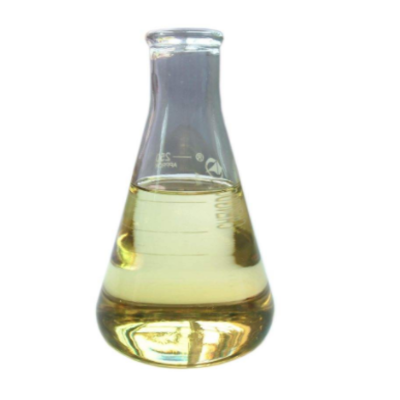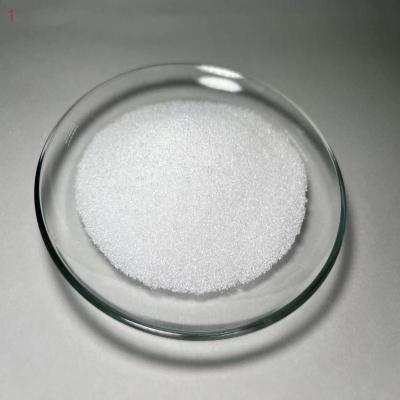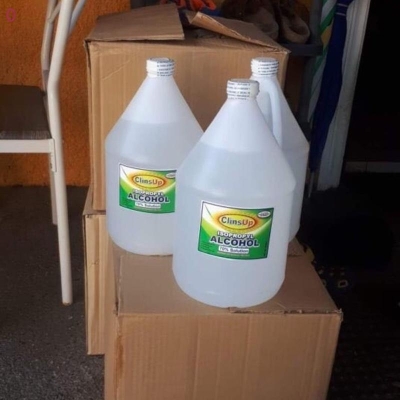-
Categories
-
Pharmaceutical Intermediates
-
Active Pharmaceutical Ingredients
-
Food Additives
- Industrial Coatings
- Agrochemicals
- Dyes and Pigments
- Surfactant
- Flavors and Fragrances
- Chemical Reagents
- Catalyst and Auxiliary
- Natural Products
- Inorganic Chemistry
-
Organic Chemistry
-
Biochemical Engineering
- Analytical Chemistry
- Cosmetic Ingredient
-
Pharmaceutical Intermediates
Promotion
ECHEMI Mall
Wholesale
Weekly Price
Exhibition
News
-
Trade Service
The US "Forbes" biweekly website reported on March 11 that a study estimated that by 2050, the weight of all plastics in the ocean may be equivalent to the weight of fish
Japanese scientists once reported in the journal Science in 2016 that they had discovered a kind of bacteria that can "swallow" plastics.
Scientists have high hopes for these bacteria that "swallow" plastic
Found that bacteria can "eat" plastic
Found that bacteria can "eat" plasticThe above-mentioned research published in the journal "Science" shows that Keio University researchers accidentally discovered that a peculiar bacterium Ideonella sakaiensis 201-F6 can "eat" plastic
After further investigation, the researchers found that an enzyme called ISF6-4831, which reacts with water can decompose PET into an intermediate medium, and then the second enzyme ISF6-0224 further decomposes the intermediate into simple Molecular structure
Coincidentally, according to Pakistan’s “Dawn” report on September 26, 2017, Chinese and Pakistani scientists have recently jointly discovered a fungus Aspergillus tubingensi that can decompose plastics, a network of root filaments that grows inside the bacteria.
According to a report on the website of The Independent on June 30, 2019, Morgan Wegg, a student at Reed College in Oregon, USA, found another edible PET in a sample collected at an oil yard near his home in Houston, Texas.
Weige said that the use of this strain may completely change the way plastic waste is handled, and speeding up the process of the bacteria "eating" plastic is expected to play a "great role" in solving the earth's plastic problem
In addition, in March 2020, German scientists at the Helmholtz Environmental Research Center in Leipzig, after collecting soil from a fragile plastic waste site in Leipzig and studying it, they discovered a polyurethane diol as food (polyurethane diol).
Scientists have discovered some bacteria that can "eat" plastic
The Forbes biweekly website pointed out in a report on March 11 that although the speed at which these bacteria "engulf" plastic cannot keep up with the rate at which humans can produce plastic waste each year, these findings mean that one day, scientists may produce this in large quantities.
Biological modification can increase the efficiency of "phagocytosis"
Biological modification can increase the efficiency of "phagocytosis""Forbes" biweekly report pointed out that in order for these natural bacteria to work, they must be biologically modified to increase the rate of degradation of plastics by hundreds or thousands of times
Scientists have also made some breakthroughs in this area
However, the research leader, Professor John Megan of the University of Portsmouth, also said: "We now need to find ways to reduce the cost of producing this enzyme, and we also need to master the technology for large-scale industrial use of this enzyme
Although the road ahead is long, Megan is optimistic that this will be a new starting point for mankind to finally eliminate plastic pollution and control the proliferation of plastics
Although the large-scale commercial application of these bacteria will still take several years, the dawn has already appeared! Carbios of France may break ground in the next few months to build a demonstration plant that uses enzymes to biodegrade PET plastic
Large-scale deployment still faces many challenges
Large-scale deployment still faces many challengesHowever, some experts warn that even if these new technologies are deployed on a large scale one day, they will still face many problems and may even bring unknown risks
.
First of all, most of these bacteria can only digest PET.
It may be difficult for other plastics, such as HDPE, which is used to make shampoo bottles or pipes and other harder materials, to use these bacteria to achieve biodegradation
.
In addition, bacteria cannot degrade plastic into its carbon and hydrogen, and usually only break it down into monomers, which can usually only be used to make more plastics
.
For example, the Kabios factory intends to turn PET plastic back into raw materials to produce more plastic
.
Moreover, even if it is possible in the future to produce bacteria in large quantities and send them to garbage dumps, this method may also bring other problems-the biodegradation of these plastics may release the chemical additives contained therein, thereby polluting the environment
.
Experts say that the best way to overcome the plastic waste crisis is to use other reusable items instead
.
For example, the British company Notpla has used sodium alginate gel to make natural biodegradable plastic-free packaging
.







